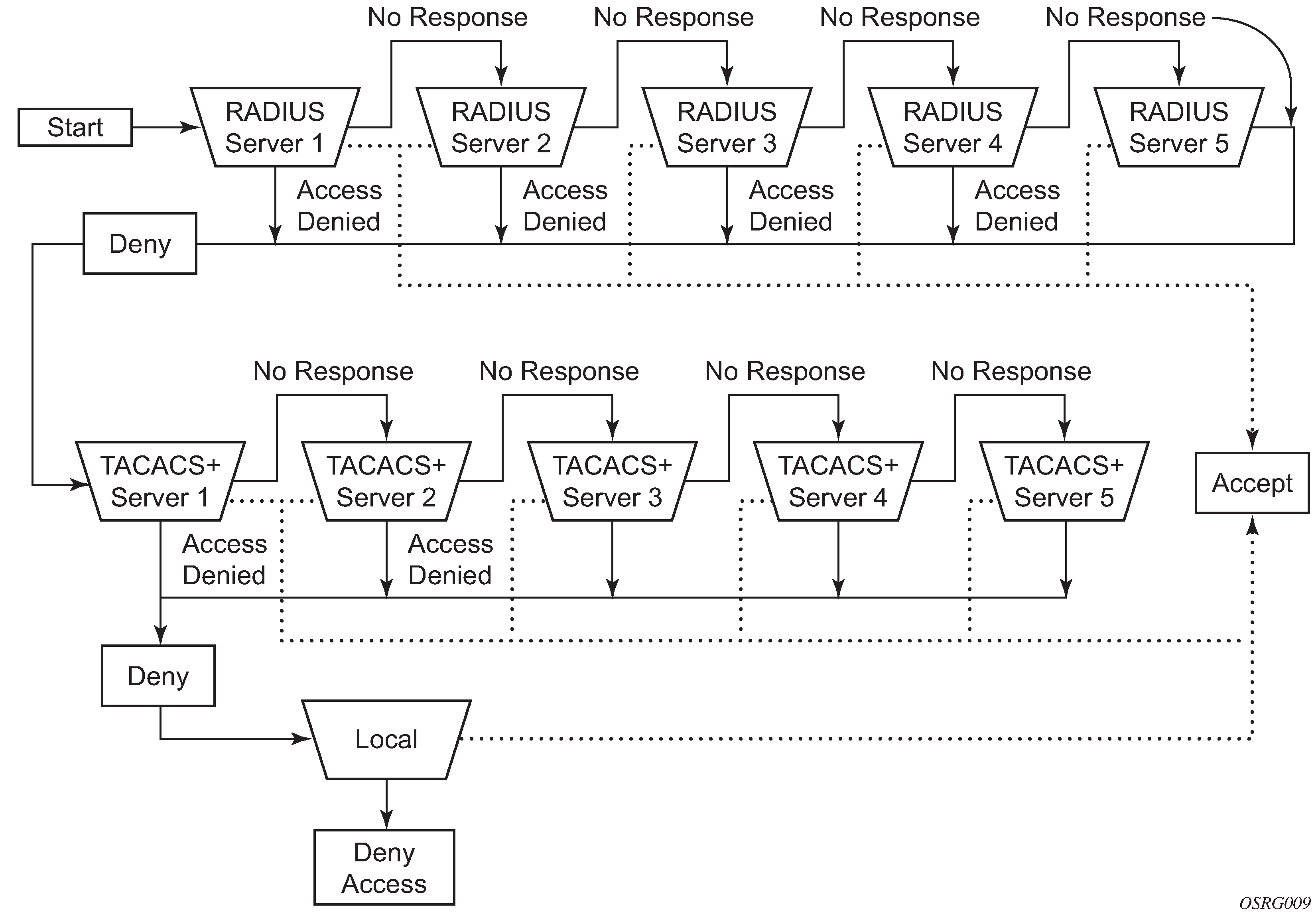In Figure: Security flow, the authentication process is defined in the config>system>security>password context. The authentication order is determined by specifying the sequence in which authentication is attempted among RADIUS, TACACS+, LDAP, and local. This example uses the authentication order of RADIUS, then TACACS+, and finally, local. An access request is sent to RADIUS server 1. One of two scenarios can occur. If there is no response from the server, the request is passed to the next RADIUS server with the next lowest index (RADIUS server 2) and so on, until the last RADIUS server is attempted (RADIUS server 5). If server 5 does not respond, the request is passed to the TACACS+ server 1. If there is no response from that server, the request is passed to the next TACACS+ server with the next lowest index (TACACS+ server 2) and so on.
If a request is sent to an active RADIUS server and the username and password is not recognized, access is denied and passed on to the next authentication option, in this case, the TACACS+ server. The process continues until the request is either accepted, denied, or each server is queried. Finally, if the request is denied by the active TACACS+ server, the local parameters are checked for username and password verification. This is the last chance for the access request to be accepted.
